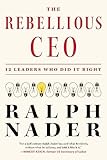Guardian columnist John Harris, like a lot of liberal journalists at the moment, is moving rapidly out of a brief interlude of atonement for so badly misjudging the outcome of the UK’s recent election to a sense of resentment. Those of us who held firm against the media doomsayers over the past two years – rejecting their predictions of a Labour rout under its leader Jeremy Corbyn – are being accused of triumphalism.
In Harris’ words:
Haters, doubters and sceptics have been rounded on. Journalists with any history of disbelief or hostility should apparently resign or be sacked. Labour MPs who once wanted Corbyn to quit should be reciting the socialist equivalent of Hail Marys, and burying any hopes of a return to the shadow cabinet. …
Looking back at the very real woes that preceded the party’s breakthrough, there seems to be some implicit suggestion that a huge crowd of true believers always knew things were on track but could not be heard above the hostile braying. But this, obviously, is not true.
That “obviously” needs examining. The desire to hold journalists to account for their treatment of Corbyn is not about gloating – even if it looks that way to those now facing the backlash. Harris badly misunderstands and trivialises the current mood, just as he misunderstood the mood of the past two years.
There is real frustration and anger, and it is being directed at individual journalists because there is no one else to vent the rage at. Faceless media corporations have no meaningful presence on Twitter or Facebook. We cannot berate them directly. But we can channel our protests at the corporate media’s employees, those who acted as its spokesmen and women.
Our problem is not that individual journalists reached mistaken conclusions about Corbyn. The concern runs much deeper than that. It is that most journalists, even among the most liberal parts of the media, rejected Corbyn and what he stood for from the outset. Even those who had some sympathy for Corbyn’s politics, like Harris, were easily swayed by their colleagues into abandoning him. And therein lies our grievance. It is not a new grievance; Corbyn’s wholesale abuse simply clarified it for us.
The corporate media earnt its name for a reason. Like other corporations, it has a collective agenda. Its bottom line is support for a political, social and economic environment that is good for corporate profits.
That doesn’t make media outlets identical. There are liberal and right wing parts of the media, just as there are branding variations in other markets. Apple wants to persuade you that it is a progressive and socially conscious company, even as underpaid and overworked Chinese workers throw themselves out of the top-floor windows of its factories. The reality is that Apple is no more concerned about workers rights than Microsoft – its packaging is simply better designed to persuade you that it cares, because that is what its users expect from it.
Harris and others at the Guardian did not fail just because they could not foresee how popular Corbyn would prove when put to the electoral test. They failed because it was their role to fail. Whether they understand it or not, they reached their positions of influence in the media either because their imaginative horizons had long ago been so beaten into submission that Corbyn’s success was impossible for them to contemplate or because their defences were so weakened – or maybe their desire to succeed in their organisations so strong – they could not withstand the tide of elite opinion.
Moreover, their failing is not just that they doubted Corbyn; it is that they collectively ridiculed those who thought differently. We were dismissed either as naïve fools or as dangerous subversives. Where were the outraged voices in the Guardian putting that calumny to rest?
Harris is right about one thing. The times are volatile, indeed:
Events of all kinds now seem to move at light speed. And look at how wildly the political pendulum swings: from Obama to Trump; from the SNP triumphant to Nicola Sturgeon in sudden abeyance; from Europe supposedly in hopeless crisis to the twin leadership of Macron and Merkel; and from the Brexit victory to the glorious shocks and surprises of last week.
As the cliche goes, the election proved that no one knows anything any more.
That volatility, however, is not as inexplicable as Harris implies. It has an explanation. It is caused by two factors that are coexisting dangerously together.
The first, much of it generated by social media, is a sense of outrage among large parts of the population. New avenues to information – bypassing the gatekeepers of yore, like the BBC and the Guardian – mean that we have access to more real information and analysis than ever before. Many now understand that our political and media class has been lying to them for a long time and that it no longer feels, or is, accountable.
The second factor is a profound sense of loss, alienation and confusion at the dawning realisation that the corporate media cannot be trusted. Social media have helped prove that the media and political class cannot be trusted, but it has not offered a clear path out of the bewilderment. People know they want change, but they have not yet found a compass they feel confident can guide them to a better place. That is why a Trump can be the beneficiary of the new mood as much as a Corbyn.
What we need now is a revolution in consciousness. We need to understand not only who are our enemies, but who are our friends.
The anger directed at Harris is not interested in simply making him feel bad for a day or two. It wants real change. And that change is being delayed by journalists like Harris, who continue to be incapable of understanding their role in the corporate media world.
Until those inside the corporate media become a voice of dissent from within, joining us in our demands for radical reform that stops the media representing only the interests of billionaires, that ends the influence of corporate advertising, and that ensures true pluralism, then they are the problem. And they will find that their social media accounts continue to bother them.










